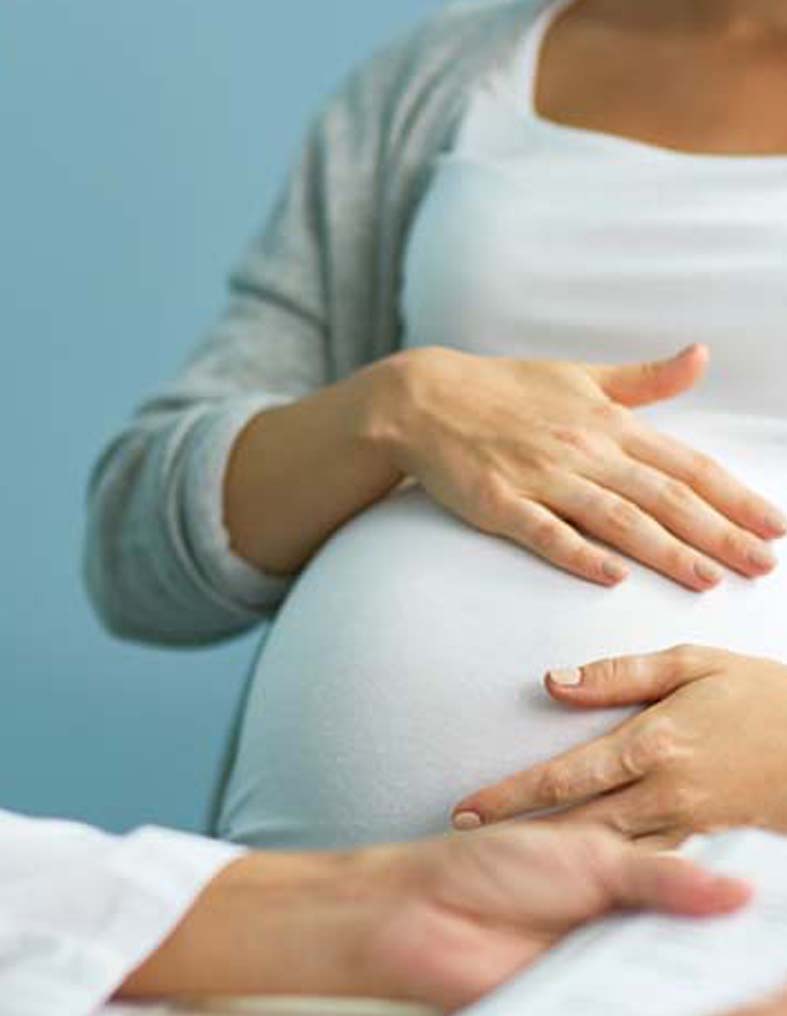
The FASD Umbrella
FASD itself is not a diagnosis but rather an umbrella term describing the range of birth defects caused by prenatal alcohol exposure. These effects may include physical, mental, behavioral and/or learning disabilities with possible lifelong implications.2 There are many terms under the FASD umbrella, including these medical diagnoses:3
- Fetal Alcohol Syndrome (FAS)
- Alcohol Related Neuro-developmental Disorders (ARND)
- Alcohol Related Birth Defects (ARBD)
- Partial Fetal Alcohol Syndrome (pFAS)

FASD is a Spectrum
The effects of prenatal alcohol exposure impact each person differently. An FASD evaluation may be needed if you see signs like:
- Hearing or vision problems4, 5
- Difficulty in school6
- Poor coordination7
- Sensitivity to light, touch, or sound8
- Hyperactive behavior9
- Difficulty paying attention10
- Memory issues11
- Poor social skills12
- Impulsivity13
- Poor reasoning and judgment skills14
These symptoms can sometimes be mistaken for other disorders, which is why getting an accurate evaluation is key.

Strengths and Talents
By focusing on strengths and providing the right supports, individuals with an FASD can lead fulfilling and successful lives. Their unique abilities deserve to be recognized, valued and appreciated. Here are some common strengths of those with an FASD:
- Highly creative and artistic
- Good at hands-on tasks and working with tools
- Strong visual and spatial skills
- Friendly, caring and eager to help others
- Persistent and determined in their interests
View sources
1 Burd L, Blair J, Dropps K. Prenatal alcohol exposure, blood alcohol concentrations and alcohol elimination rates for the mother, fetus and newborn. Journal of Perinatology. 2012;32(9):652-659.
2 Noor S, Milligan ED. Lifelong Impacts of Moderate Prenatal Alcohol Exposure on Neuroimmune Function. Frontiers in Immunology. 2018.
3 Gross AC, Deling LA, Wozniak JR, Boys CJ. Objective measures of executive functioning are highly discrepant with parent-report in fetal alcohol spectrum disorders. Child Neuropsychology. 2015;2(4):531-538.
4 Stephen JM, Kodituwakku PW, Kodituwakku EL, Romero L, Peters AM, Sharadamma NM, Caprihan A, Coffman BA. Delays in auditory processing identified in preschool children with FASD. Alcoholism, Clinical and Experimental Research. 2012;36(10):1720-1727.
5 Vernescu RM, Adams RJ, Courage ML. Children with fetal alcohol spectrum disorder show an amblyopia-like pattern of vision deficit. Developmental Medicine and Child Neurology. 2012;54(6):557-562.
6 Glass L, Moore EM, Akshoomoff N, Jones KL, Riley EP, Mattson SN. Academic difficulties in children with prenatal alcohol exposure: Presence, profile, and neural correlates. Alcoholism: Clinical and Experimental Research. 2017;41(5):1024-1034.
7 Taggart TC, Simmons RW, Thomas JD, Riley EP. Children with Heavy Prenatal Alcohol Exposure Exhibit Atypical Gait Characteristics. Alcoholism: Clinical & Experimental Research. 2017;41(9):1648-1655.
8 Masotti P, Longstaffe S, Gammon H, Isbister J, Maxwell B, Hanlon-Dearman A. Integrating care for individuals with FASD: results from a multi-stakeholder symposium. BMC Health Services Research. 2015;15(1):1-12.
9 Young S, Absoud M, Blackburn C, Branney P, Colley B, Farrag E, & … Mukherjee R. Guidelines for identification and treatment of individuals with attention deficit/ hyperactivity disorder and associated fetal alcohol spectrum disorders based upon expert consensus. BMC Psychiatry. 2016; 16(1):324.
10 Flak AL, Su S, Bertrand J, Denny CH, Kesmodel US, Cogswell ME. The association of mild, moderate, and binge prenatal alcohol exposure and child neuropsychological outcomes: A Meta-analysis. Alcohol Clin Exp Res. 2014;38(1):214-26.
11 Terasaki LS, Schwarz JM. Impact of Prenatal and Subsequent Adult Alcohol Exposure on Pro-Inflammatory Cytokine Expression in Brain Regions Necessary for Simple Recognition Memory. Brain Sciences (2076-3425). 2017;7(10):1-16.
12 Panczakiewicz AL, Glass L, Coles CD, et al. Neurobehavioral deficits consistent across age and sex in youth with prenatal alcohol exposure. Alcoholism: Clinical and Experimental Research. 2016;40(9):1971-1981.
13 Pei J, Leung WSW, Jampolsky F, Alsbury B. Experiences in the Canadian criminal justice system for individuals with Fetal Alcohol Spectrum Disorders: Doublejeopardy?. Canadian Journal of Criminology & Criminal Justice. 2016;58(1):56-86.
14 Rangmar J, Dahlgren Sandberg A, Aronson M, Fahlke C. Cognitive and executive functions, social cognition and sense of coherence in adults with fetal alcohol syndrome. Nordic Journal of Psychiatry. 2015;69:472-478.
15 Fitzpatrick JP, Pestell CF. Neuropsychological Aspects of Prevention and Intervention for Fetal Alcohol Spectrum Disorders in Australia. Journal of Pediatric Neuropsychology. 2017;3(1):38-52.
16 Centers for Disease Control and Prevention. Fetal Alcohol Spectrum Disorders (FASDs). https://www.cdc.gov/ncbddd/fasd/alcohol-use.html
17 American Academy of Pediatrics. AAP Says No Amount of Alcohol Should Be Considered Safe During Pregnancy. https://www.aap.org/en-us/about-the-aap/aap-press-room/Pages/AAP-Says-No-Amount-of-Alcohol-Should-be-Considered-Safe-During-Pregnancy.aspx
18 Centers for Disease Control and Prevention. Notice to Readers: Surgeon General’s Advisory on Alcohol Use in Pregnancy. https://www.cdc.gov/mmwr/preview/mmwrhtml/mm5409a6.htm
19 National Institutes of Health, National Institute on Alcohol Abuse and Alcoholism. Fetal Alcohol Exposure. https://www.niaaa.nih.gov/alcohol-health/fetal-alcohol-exposure
20 World Health Organization. Counting the Costs of Drinking Alcohol During Pregnancy. https://www.who.int/bulletin/volumes/95/5/17-030517/en/
What can we help
you find today?
I want:
— or —
Get personalized help
Our FASD-informed Family Support Navigator team will connect you with the best navigator for your needs. We’ll reach out within one week to offer personalized, real-time help.




